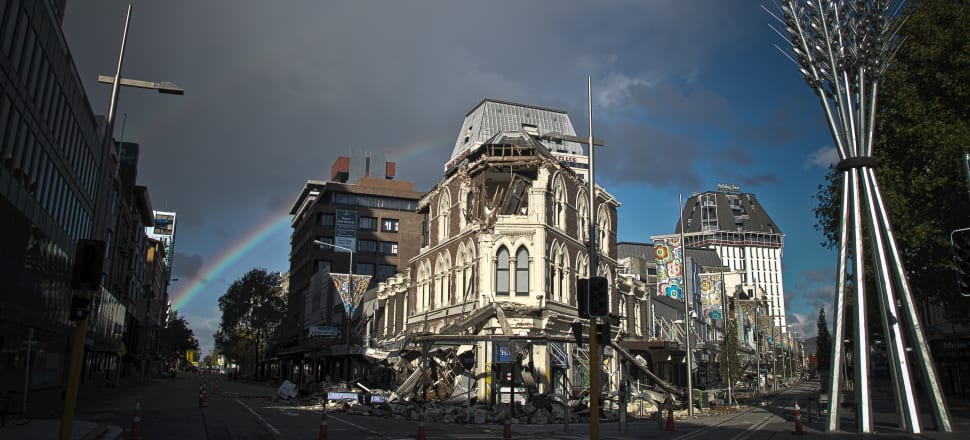
It's heartbreaking to wade into people's homes and experience first-hand the impact of major floods, says the former Christchurch mayor. Traumatised communities need to be involved in their recovery – what happens next in Auckland is vital.
Opinion: I have been an unashamed champion of resilience since the 2010 and 2011 earthquakes that struck Christchurch. All the reasons why the need to build resilience is so vital to our future have come to the fore as Auckland responds to the disastrous floods and begins the process of recovery.
I recently participated in an international forum where we were discussing the importance of learning from experience so that we could achieve our aspirations for a sustainable and resilient future. I made the point that lessons are not learned until they are embedded into practice.
I see Auckland having to learn lessons that have been learned elsewhere, and I am not just talking about Christchurch.
READ MORE:
* Business needs to urgently embrace climate resilience
* Looking to nature to design climate-resilient cities
* Can a sponge city really prevent flooding?
I have been invited to become a member of the Global Board of Directors for the Resilient Cities Network, and I am really pleased to do so with a sense of giving back after having been the recipient of so much generosity from across the world in my role as mayor.
This is a network that along with its partners enables cities to share their experience and expertise to build our collective capacity to survive, adapt and thrive no matter what kinds of chronic stresses and acute shocks we experience. It started life as a centenary project pioneered by the Rockefeller Foundation in 2013, and Christchurch became one of its founding members.
I believe such networks are more vital than ever, because they give us the ability to learn from each other’s experiences as we confront increasingly complex and frequent disasters.
As Resilient Cities Network points out, cities are systems, not siloes, and they are made up of people living in communities. The business-as-usual models of reactive and siloed decision-making simply do not generate the strength and flexibility required to take on these challenges.
And that’s why what happens next in Auckland matters so much. It is vital they use their recovery to build resilience in the broadest sense of the word.
The Cities Network connects us to cities such as New Orleans, Houston and New York, which bring a wealth of experience to draw on.
It was heartbreaking to wade into people's homes and experience first-hand the impact of the floods. It was not just the physical damage, it was the psychological trauma as well.
We know there will be hard decisions ahead, and engaging the community in these will be extremely important.
In fact, affected communities must be fully engaged from the outset. It’s a joint learning approach that ensures expertise is shared and people can see what the options are, while being given the opportunity to feed in local knowledge. Traditional knowledge will also play an important part in the recovery, which is why partnering with mana whenua is vital.
None of this happened in Christchurch when communities were ‘red-zoned’. Lines on maps had been drawn well before affected residents were even engaged in the process. I’m not going to go into the decision, which has clearly made the city more resilient to flooding. All I’m saying is that there was an impact on the recovery when the community was not trusted to participate in the decision-making process. And that is something Auckland can get right.
Urban governance is often siloed, with separate teams designing disaster-recovery plans, exploring sustainability issues, focusing on livelihoods and wellbeing, and examining land-use planning and infrastructure. This approach simply cannot meet the demands of today’s interconnected world, and Auckland could really lead the way partnering with government and mana whenua to create a more resilient city with much more engaged communities.
I will never forget the three major flooding events we experienced in Christchurch early on in my mayoralty. It was heartbreaking to wade into people's homes and experience first-hand the impact of the floods. It was not just the physical damage, it was the psychological trauma as well.
The multi-disciplinary Christchurch Mayoral Flood Taskforce pulled key people away from their business-as-usual roles and got them working together to problem-solve and to engage directly with the affected communities.
The reinsurers looked out of place until I realised they were there because they could see that investing in resilience was the only way to manage their exposure when it was becoming increasingly difficult to price risk.
The taskforce's final report provided an invaluable framework for making major decisions on flood protection and mitigation works, including a voluntary buyout scheme for the most vulnerable homes. It has stood Christchurch in good stead, as evidenced in more recent storm events.
This has proved the value of the investment we made in resilience. And that is something Auckland should consider.
I remember attending a natural hazards conference several years ago when I had my resilience “aha” moment.
It was the first time I saw reinsurers at the same table as scientists, recovery experts, engineers and political leaders.
The reinsurers looked out of place until I realised they were there because they could see that investing in resilience was the only way to manage their exposure when it was becoming increasingly difficult to price risk.
And that was my aha moment.
It’s not just about insurers and reinsurers pricing risk, it’s also about making things better for the future – disaster risk reduction, climate change adaptation, sustainable community development, all wrapped up in resilience.
With a crisis comes opportunity, and I hope Auckland seizes that opportunity for a sustainable and resilient future.







